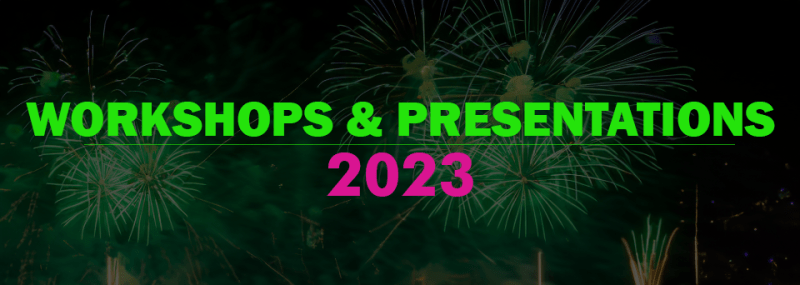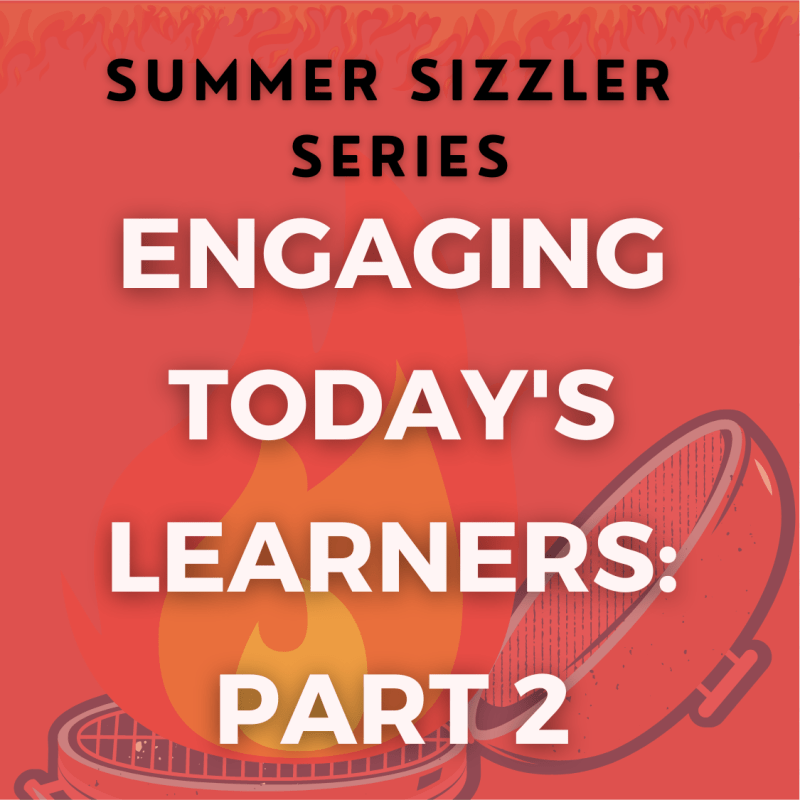LEC Workshops & Presentations: Year in Review 2023
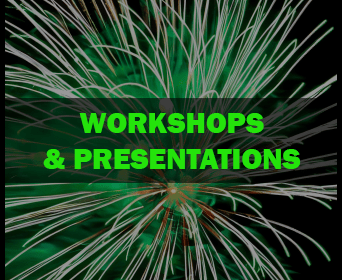
ChatGPT, Caktus, and other AI Essay Generators: How Should We Respond?
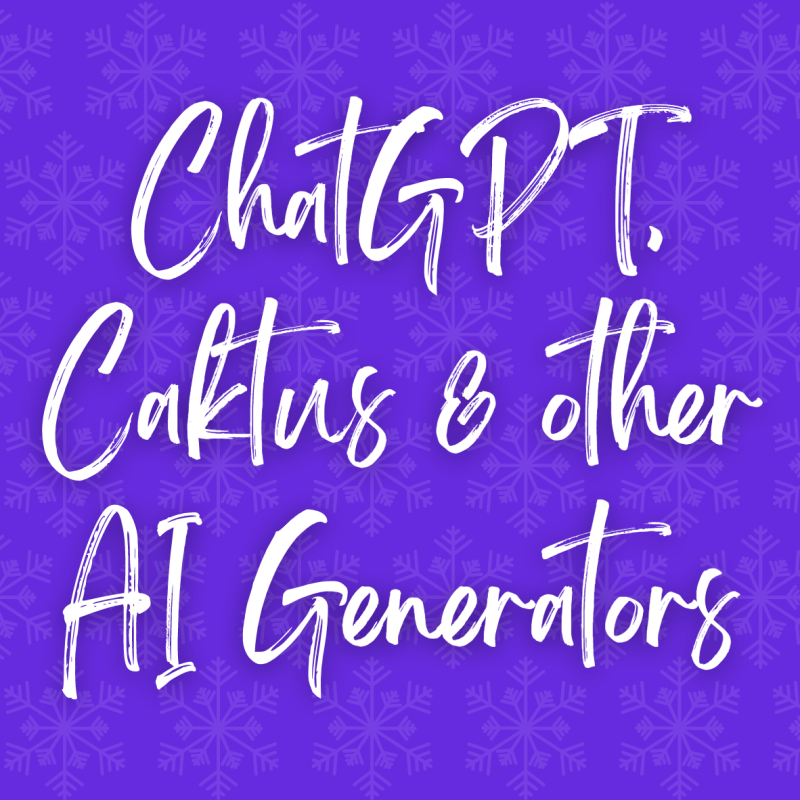 This panel provided participants with an overview of AI essay generators, specifically ChatGPT and Caktus, and how they might affect the teaching of writing across the university. Panelists from a variety of disciplines shared their perspectives on AI essay generators, including discussions they are having with students about essay generators, adjustments they have made to writing assignments, and how they might use essay generators as pedagogical tools. A discussion period followed the presentation.
This panel provided participants with an overview of AI essay generators, specifically ChatGPT and Caktus, and how they might affect the teaching of writing across the university. Panelists from a variety of disciplines shared their perspectives on AI essay generators, including discussions they are having with students about essay generators, adjustments they have made to writing assignments, and how they might use essay generators as pedagogical tools. A discussion period followed the presentation.
All About Using LEC Course Templates in Canvas
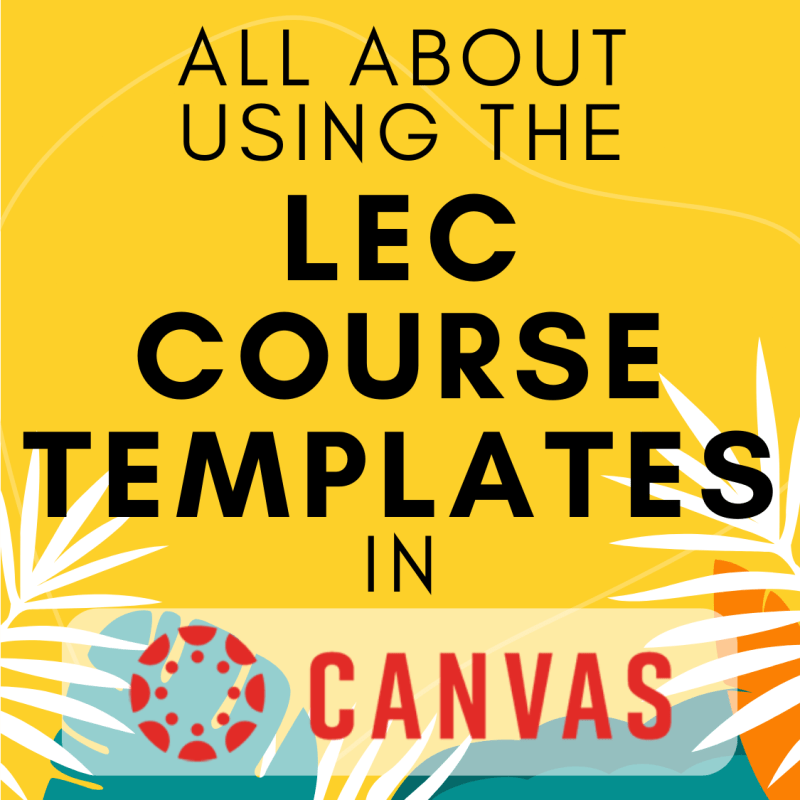 The Learning and Educational Center provides three Canvas course templates that support effective online teaching practices for faculty and students. Each template can save faculty valuable development time while bolstering their effort to ensure that courses are quality-focused and accessible to all learners. Now that you are aware of the new template options, you may be wondering how to use one or more of these templates in your course. Well, no wondering necessary! Let us help you navigate importing and taking advantage of the templates to suit your needs in our upcoming workshop on efficient course design with the LEC Course Templates.
The Learning and Educational Center provides three Canvas course templates that support effective online teaching practices for faculty and students. Each template can save faculty valuable development time while bolstering their effort to ensure that courses are quality-focused and accessible to all learners. Now that you are aware of the new template options, you may be wondering how to use one or more of these templates in your course. Well, no wondering necessary! Let us help you navigate importing and taking advantage of the templates to suit your needs in our upcoming workshop on efficient course design with the LEC Course Templates.
Formative Assessment: Assessing the Process Along with the Product
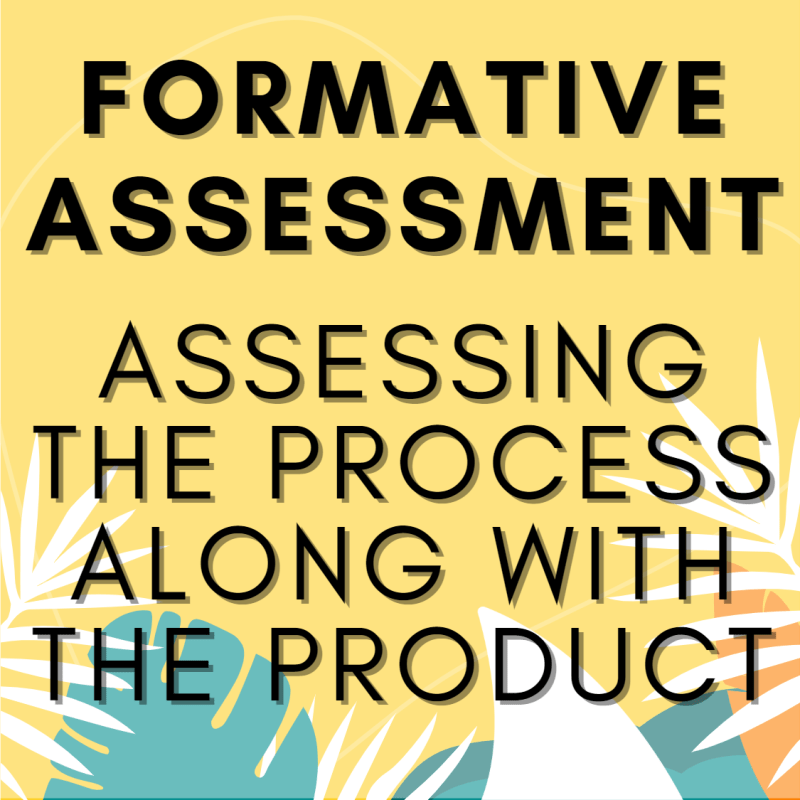 Formative assessments benefit both students and instructors during the learning process. They give students opportunities to process content and practice important skills while giving both students and their instructors feedback on how students are doing in a course. They also inform faculty about the effectiveness of instruction and what course material may need reinforcement. This workshop will highlight the benefits of formative assessment, the qualities of effective formative assessments, the characteristics of quality feedback, and the benefits of having low stakes formative assessments. It will also guide faculty with the development of formative assessments, share examples, and identify available tools for assessment.
Formative assessments benefit both students and instructors during the learning process. They give students opportunities to process content and practice important skills while giving both students and their instructors feedback on how students are doing in a course. They also inform faculty about the effectiveness of instruction and what course material may need reinforcement. This workshop will highlight the benefits of formative assessment, the qualities of effective formative assessments, the characteristics of quality feedback, and the benefits of having low stakes formative assessments. It will also guide faculty with the development of formative assessments, share examples, and identify available tools for assessment.
Level Up by Engaging and Motivating your Students with Gamification using Canvas Badges
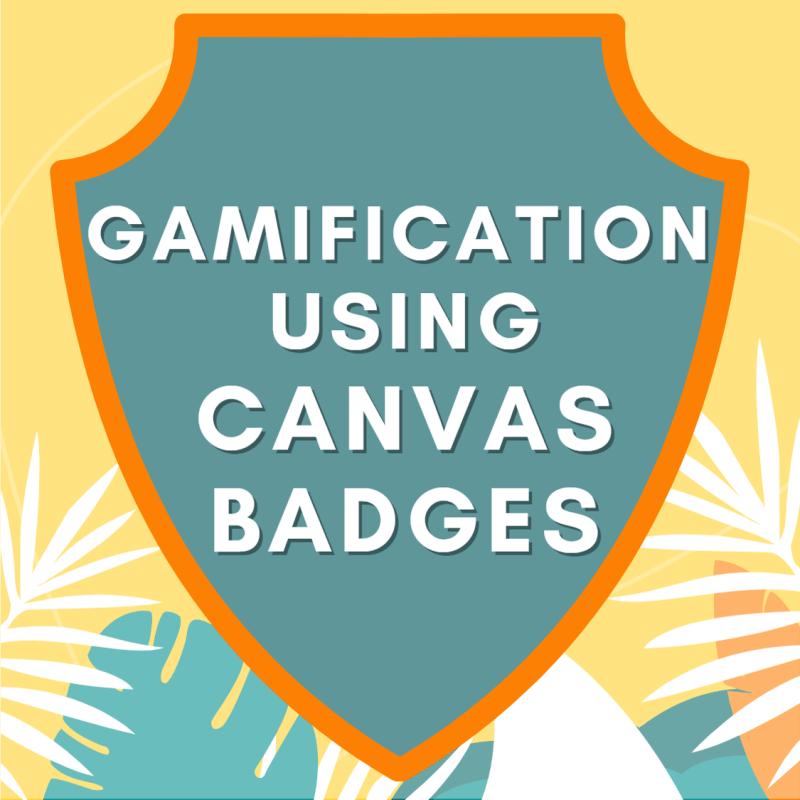 Join us for this interactive workshop, where we will explore the world of gamification in your Course. Gain a deep understanding of its purpose and key elements. Uncover misconceptions and apply gamification in your Canvas course, designing a badge system for engaging learning experiences. Discover six best practices for implementing gamification strategies to boost student engagement, motivation, and learning outcomes. Leave equipped with the knowledge and tools to create a gamified learning environment that meets your student’s needs.
Join us for this interactive workshop, where we will explore the world of gamification in your Course. Gain a deep understanding of its purpose and key elements. Uncover misconceptions and apply gamification in your Canvas course, designing a badge system for engaging learning experiences. Discover six best practices for implementing gamification strategies to boost student engagement, motivation, and learning outcomes. Leave equipped with the knowledge and tools to create a gamified learning environment that meets your student’s needs.
Did You Know? Tips on Canvas and Zoom
 During this fast-paced workshop, we will share unique features about the tools that you use every day but may not know everything about.
During this fast-paced workshop, we will share unique features about the tools that you use every day but may not know everything about.
Summer Sizzler Series
This series focused on the rollout of the LEC Educator Competency Framework (which can be the focus of this initiatives page). You could introduce it by writing something like: The 2023 LEC Summer Sizzler Series focused on the development of effective teaching and learning competencies that are part of the LEC Educator Competency Framework: Acting with Integrity; Embracing Belonging Equity Diversity and Inclusion; Creating Learner-Centered Environments; Designing Effective Learning Experiences; and Using Innovative Teaching Strategies and Technology. Each session in the series focused on one of these competencies.
Overview of the LEC’s Educator Competency Framework
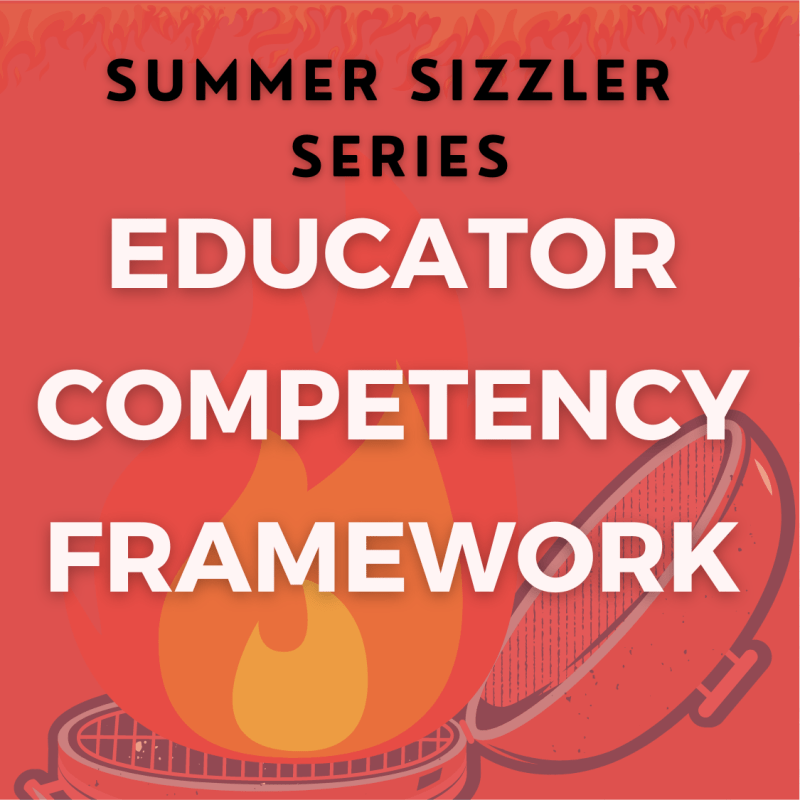 The Learning and Educational Center’s (LEC’s) Educator Competency Framework can be used to help educators improve their teaching and learning effectiveness. This framework comprises five competency categories with associated knowledge, skills, and attitudes that we believe all NSU educators should possess. The five categories are: acting with integrity, embracing belonging, equity, diversity, and inclusion, creating learner-centered environments, designing effective learning experiences, and using innovative teaching strategies and technology.
The Learning and Educational Center’s (LEC’s) Educator Competency Framework can be used to help educators improve their teaching and learning effectiveness. This framework comprises five competency categories with associated knowledge, skills, and attitudes that we believe all NSU educators should possess. The five categories are: acting with integrity, embracing belonging, equity, diversity, and inclusion, creating learner-centered environments, designing effective learning experiences, and using innovative teaching strategies and technology.
In this session, we will introduce the framework and discuss ways faculty, staff, and administrators can use it to guide their professional development activities. We will also share just-in-time educational resources that align with each competency category. Participants will walk away with a better understanding of the framework and how it can be used to guide their own professional development and improve their teaching and learning practices.
Talking to your students about Generative AI
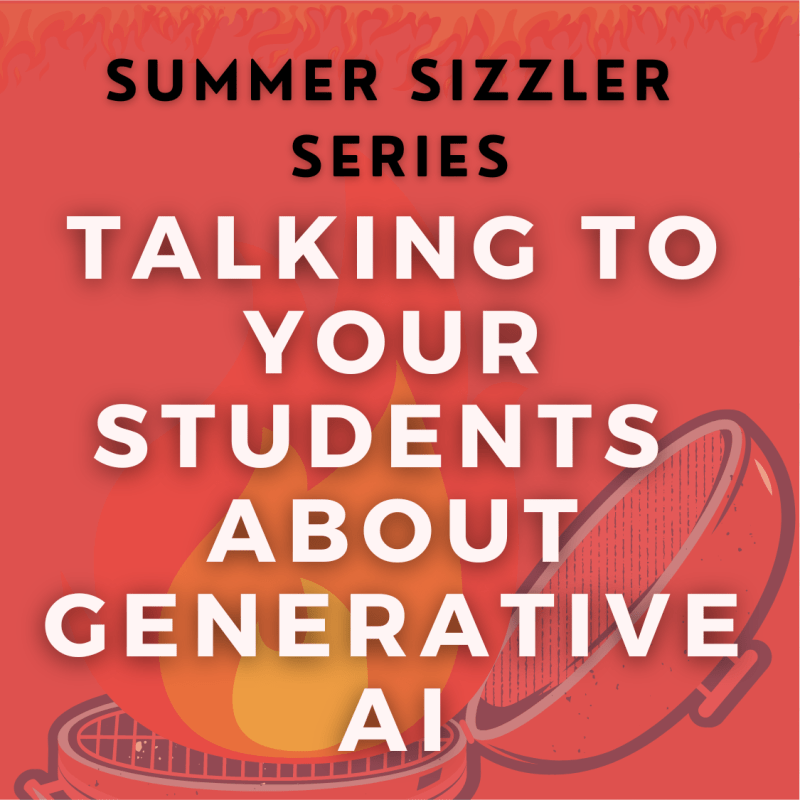 With the rapid onset of available generative artificial intelligence tools such as ChatGPT and Bard, the world of higher education has become immersed in ongoing conversations about how these tools will affect instruction and assessment. Much of the talk has centered around the potential for cheating, how to adapt instructional activities, and the ethical and practical dimensions for both faculty and students using these tools. While faculty and administration are having these conversations, there is a group who is often not involved in them – the students themselves. Students are likely to be confused as to when, if, and how they can use generative AI during their courses. For this reason, it is important to communicate with your students regarding generative AI and how you expect it to be used, or not used, during your courses. This workshop will give guidance on where, when, and how to communicate with students about generative AI along with writing a generative AI policy. It will also go over guiding students with citations, talking to them about the ethics of generative AI, and guiding students in how to determine when generative AI is useful and the need to scrutinize the results.
With the rapid onset of available generative artificial intelligence tools such as ChatGPT and Bard, the world of higher education has become immersed in ongoing conversations about how these tools will affect instruction and assessment. Much of the talk has centered around the potential for cheating, how to adapt instructional activities, and the ethical and practical dimensions for both faculty and students using these tools. While faculty and administration are having these conversations, there is a group who is often not involved in them – the students themselves. Students are likely to be confused as to when, if, and how they can use generative AI during their courses. For this reason, it is important to communicate with your students regarding generative AI and how you expect it to be used, or not used, during your courses. This workshop will give guidance on where, when, and how to communicate with students about generative AI along with writing a generative AI policy. It will also go over guiding students with citations, talking to them about the ethics of generative AI, and guiding students in how to determine when generative AI is useful and the need to scrutinize the results.
Engaging Today’s Learners
Engaging Today’s Learners, Part 1: Understanding Their Characteristics, Challenges, and Motivations
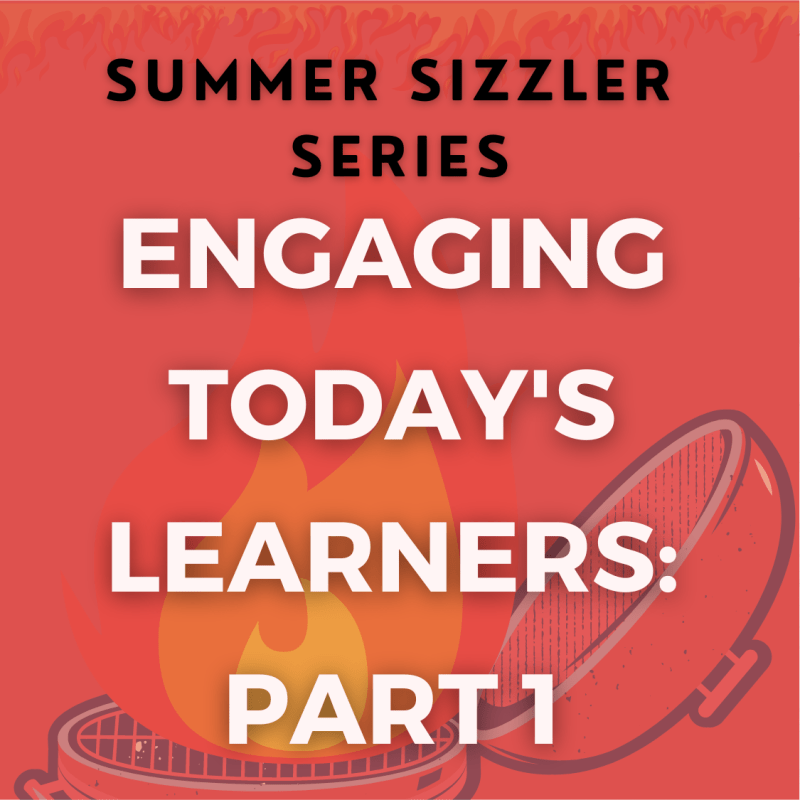 Learning begins with engaged students. In this session, our focus will be on our students. Who are they? What do they value? What are their learning preferences? What are their challenges and motivations? How has the pandemic affected their preparedness and disposition? Having a better understanding of our learner audience will help us, as educators, design, facilitate, and manage learning experiences that promote engagement and motivation.
Learning begins with engaged students. In this session, our focus will be on our students. Who are they? What do they value? What are their learning preferences? What are their challenges and motivations? How has the pandemic affected their preparedness and disposition? Having a better understanding of our learner audience will help us, as educators, design, facilitate, and manage learning experiences that promote engagement and motivation.
In Part 1 of Engaging Today’s Learners, we focused on the characteristics, challenges, and motivations as well as strategies for creating positive and productive learning environments. This session focuses on how to implement those strategies to maximize learning.
Secrets of Success: Thank-a-Professor Recipients Unpack Their Effective Teaching Techniques
After sorting through the thousands of Thank a Professor Thank You messages, our Faculty Professional Development team reached out to some of the recipients of those notes and asked them to share their techniques with their colleagues. An amazing group of twelve faculty members shared their strategies for engaging students, creating inclusive learning environments, and fostering meaningful learning experiences. Their guidance, tips, and tricks were immensely helpful for new and experienced faculty alike. Below are links to each of the recordings from the three panels that were hosted this year.
Secrets of Success: Thank-a-Professor Recipients Unpack Their Effective Teaching Techniques Panel #1
Secrets of Success: Thank-a-Professor Recipients Unpack Their Effective Teaching Techniques Panel #2
Secrets of Success: Thank-a-Professor Recipients Unpack Their Effective Teaching Techniques Panel #3
LEC’S Virtual Friday Fireside Chats: Generative AI for Teaching & Learning
This fall, the Learning and Educational Center (LEC) hosted a series of fireside chats focused on generative AI for teaching and learning. Each session focused on one of the five LEC Educator Competencies.
Friday, September 22: How is generative AI being used to support quality teaching?
Friday, October 13: How can generative AI be used in course assignments, activities, and assessments?
Friday, October 27: What are the ethical issues related to using generative AI for teaching and learning and how can ?
Friday, November 10: How can generative AI be used to enhance students’ learning experiences and prepare them for the future of work?
Friday, December 1: How can we use generative AI to ensure equitable, accessible, and inclusive learning experiences?
Ethical, Legal, Academic, and Practical Considerations for ChatGPT, Dall-E and Similar Generative AI for Today’s and Tomorrow’s Classroom
Guest Presenter: Jon M. Garon, Professor of Law and Director of the Intellectual Property, Cybersecurity, and Technology Law program, Nova Southeastern University Shepard Broad College of Law
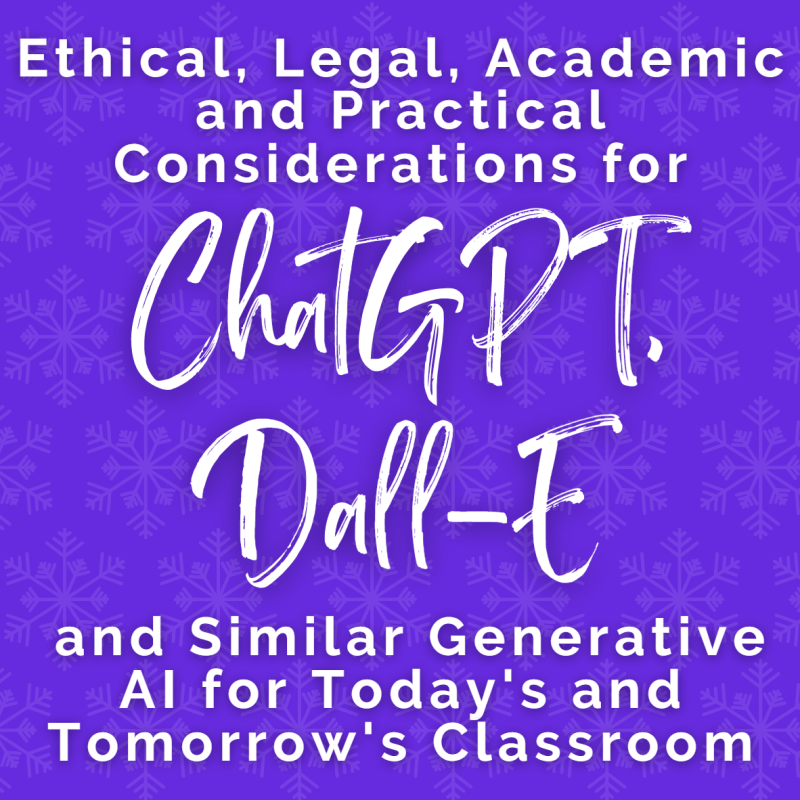 Generative AI products include ChatGPT for text, Dall-E for imagery, deepfakes for videos, avatars in social media feeds, Google’s Music LM and Jukebox for music generation, software code generation, and more. These tools are moving rapidly from experimental to core features of ubiquitous software products, including Microsoft Office and Google. This change has significant implications to teaching and learning across most fields. Beyond pedagogy, the introduction of generative AI has important legal and ethical implications regarding copyright, privacy laws, anti-discrimination laws, ADA compliance, and much more. This discussion will explore the legal, ethical, and academic policy considerations regarding the use of generative AI by students, faculty, and institutions.
Generative AI products include ChatGPT for text, Dall-E for imagery, deepfakes for videos, avatars in social media feeds, Google’s Music LM and Jukebox for music generation, software code generation, and more. These tools are moving rapidly from experimental to core features of ubiquitous software products, including Microsoft Office and Google. This change has significant implications to teaching and learning across most fields. Beyond pedagogy, the introduction of generative AI has important legal and ethical implications regarding copyright, privacy laws, anti-discrimination laws, ADA compliance, and much more. This discussion will explore the legal, ethical, and academic policy considerations regarding the use of generative AI by students, faculty, and institutions.
How to Build a Branching Scenario in SharkMedia
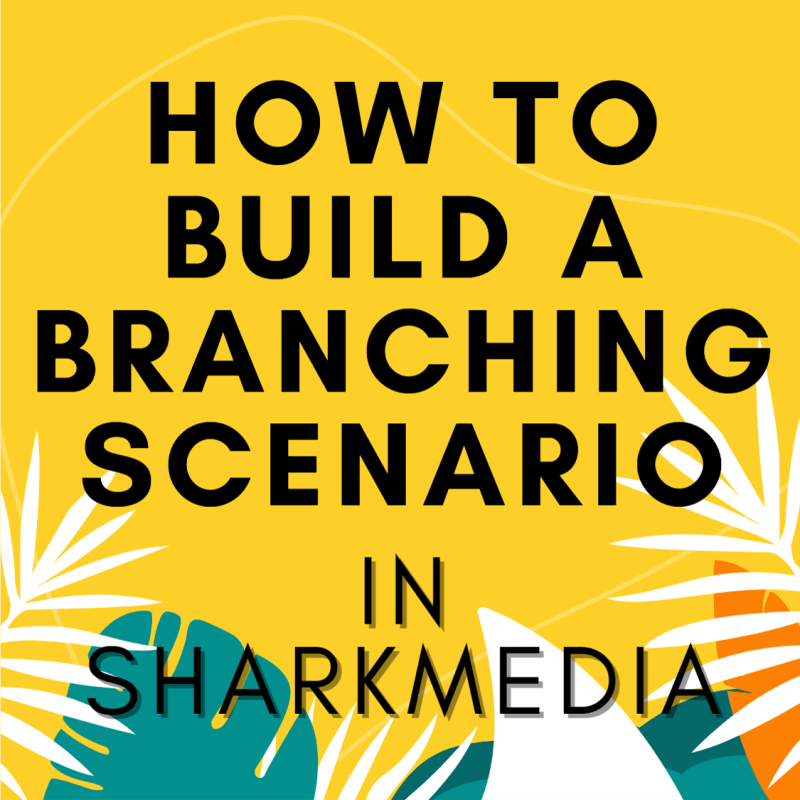 Lights, Camera, Action! Would you like to create an interactive video? SharkMedia has been enhanced with an exciting feature from Kaltura called Interactive Video Paths. Interactive Videos enable you to create a more personalized, “choose your own adventure” learning experience by adding choice-based learning paths to your videos. Interactive videos are well known for their ability to increase viewer’s participation, reduce cognitive overload, maximize retention, and provide real-world learning experiences. This workshop will explore pedagogical tips and technology tools for assembling an engaging interactive video path through a step-by-step process that will help you to make your own interactive video learning experience for students.
Lights, Camera, Action! Would you like to create an interactive video? SharkMedia has been enhanced with an exciting feature from Kaltura called Interactive Video Paths. Interactive Videos enable you to create a more personalized, “choose your own adventure” learning experience by adding choice-based learning paths to your videos. Interactive videos are well known for their ability to increase viewer’s participation, reduce cognitive overload, maximize retention, and provide real-world learning experiences. This workshop will explore pedagogical tips and technology tools for assembling an engaging interactive video path through a step-by-step process that will help you to make your own interactive video learning experience for students.
Creating Interesting and Engaging Discussions with Flip
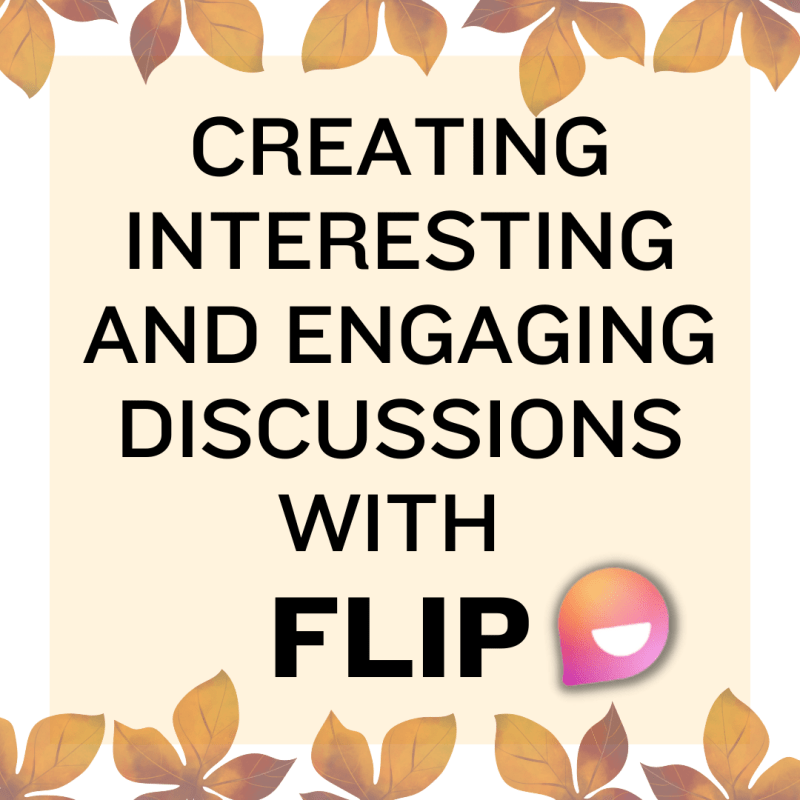 Flip is an easy-to-use tool to foster strong connections within a Canvas course. This tool is offered to educators for free and can be integrated into your Canvas Course to allow students and you the opportunity to record their responses to topics in fun and innovative ways. The social experience of letting students use creativity in composing their video allows them to engage with a topic stimulates thought-provoking responses from the students and can also be entertaining. With this tool, you see the student’s emotion during their responses, which can generate a meaningful, more connected experience to any topic you ask them to share their opinions about.
Flip is an easy-to-use tool to foster strong connections within a Canvas course. This tool is offered to educators for free and can be integrated into your Canvas Course to allow students and you the opportunity to record their responses to topics in fun and innovative ways. The social experience of letting students use creativity in composing their video allows them to engage with a topic stimulates thought-provoking responses from the students and can also be entertaining. With this tool, you see the student’s emotion during their responses, which can generate a meaningful, more connected experience to any topic you ask them to share their opinions about.
All About SharkMedia
Videos are often the most highly engaging pieces of content in a course. Videos can be used to introduce new course content, reinforce concepts already learned, share demonstrations, simulations, and much more. You may know that NSU has a media server called SharkMedia which is our branded version of Kaltura. During this workshop, we will review the many capabilities of the SharkMedia platform. We will show you where you can find every function in the platform, from uploading videos, all the way to creating chapter markers and playlists for your students.
Transform Your Students’ Video-Watching Experience with Annoto
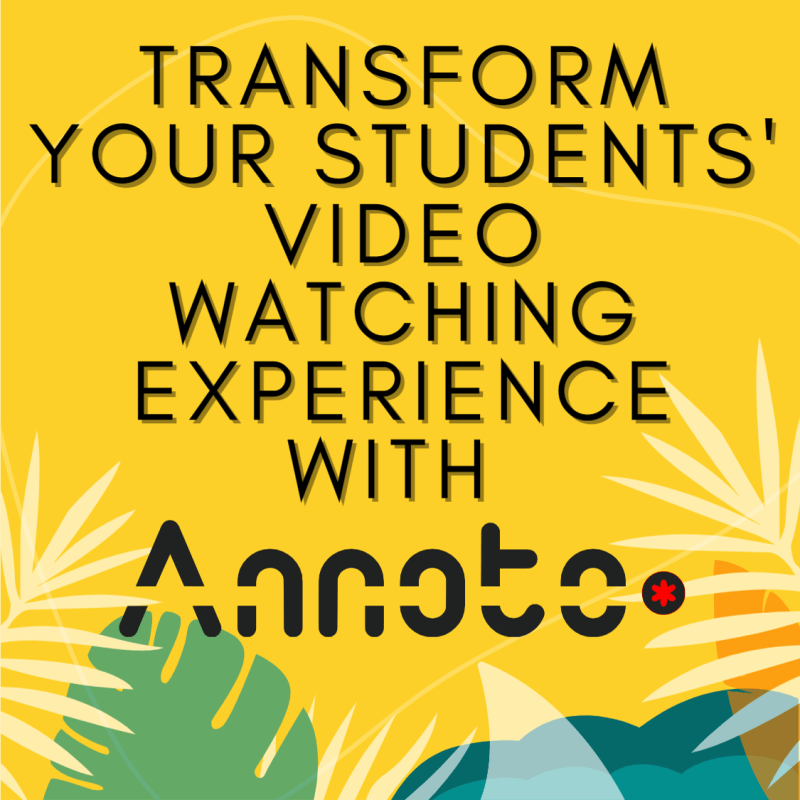 Annoto transforms passive video viewing into an active, collaborative experience that provides you with actionable insights regarding student learning and engagement. It enables students to contribute, share and learn together, experience videos as an interactive group experience, and keep a personal journal of notes. It allows instructors to guide the video-watching experience with questions, formative assessments, and focused discussions, as well as the ability to answer questions related to the video. Every interaction in Annoto is time-tagged to a specific part of the video so it is easy to align interactions with the appropriate part of the video. The Annoto dashboard allows instructors to manage video activities and settings and provides a wealth of information regarding student engagement. All this is done directly through the Canvas LMS.
Annoto transforms passive video viewing into an active, collaborative experience that provides you with actionable insights regarding student learning and engagement. It enables students to contribute, share and learn together, experience videos as an interactive group experience, and keep a personal journal of notes. It allows instructors to guide the video-watching experience with questions, formative assessments, and focused discussions, as well as the ability to answer questions related to the video. Every interaction in Annoto is time-tagged to a specific part of the video so it is easy to align interactions with the appropriate part of the video. The Annoto dashboard allows instructors to manage video activities and settings and provides a wealth of information regarding student engagement. All this is done directly through the Canvas LMS.
The workshop will introduce you to the tool and its features. It will also give instructors insights on how to apply the tool to course videos to engage learners as well as how to use the dashboard to adjust settings and get important information on your students’ engagement with your course videos.
Turnitin, Plagiarism, and AI Writing Detection in Canvas
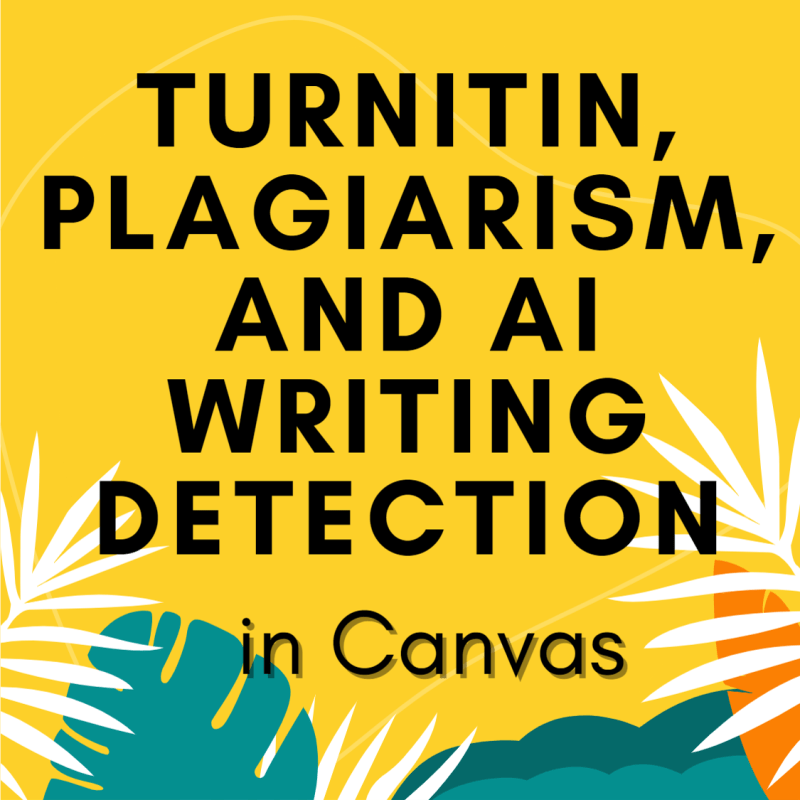 If you have writing assignments in your course, you already know that plagiarism can be a problem. This workshop will present the tool, Turnitin, which helps identify instances of potential plagiarism along with the newly added function of AI writing detection. During the workshop, you will learn about the various ways in which Turnitin can be used in your Canvas course so that you can begin screening writing assignments for plagiarism, grammatical errors, and detecting AI-written essays.
If you have writing assignments in your course, you already know that plagiarism can be a problem. This workshop will present the tool, Turnitin, which helps identify instances of potential plagiarism along with the newly added function of AI writing detection. During the workshop, you will learn about the various ways in which Turnitin can be used in your Canvas course so that you can begin screening writing assignments for plagiarism, grammatical errors, and detecting AI-written essays.
All About Canvas Rubrics
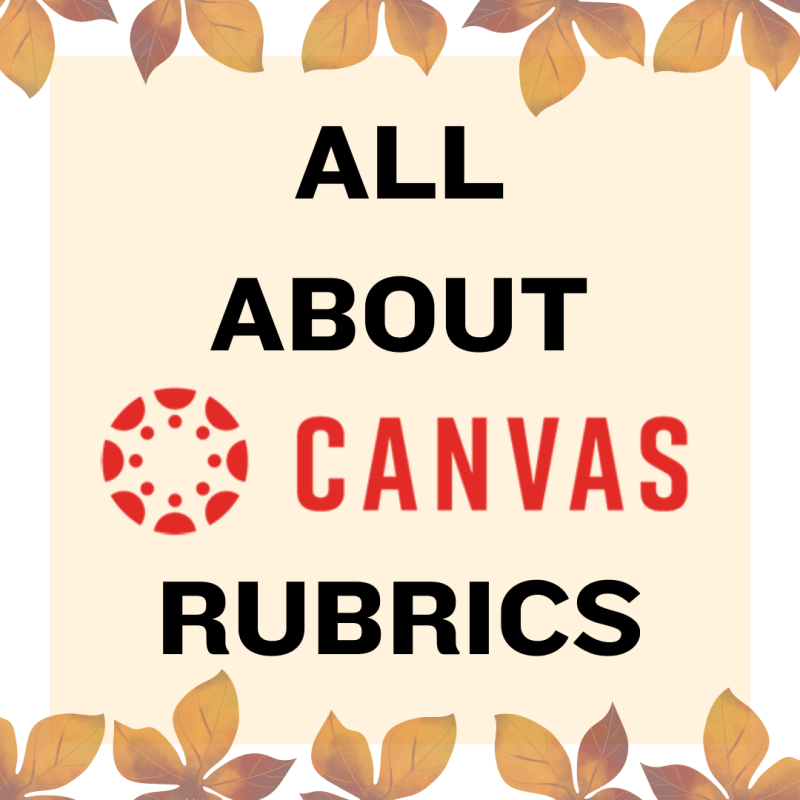 Join us for an exciting workshop ‘All About Canvas Rubrics’! In this 55-minute session, you will discover how to use Canvas Rubrics to provide clear and consistent feedback to students, save time grading, and improve the quality of student work. You will learn about different types of rubrics, including holistic, analytic, single-point, and customized rubrics, and discover how to create and use them effectively in your course. Whether you’re a seasoned Canvas user or new to the platform, this workshop will provide you with practical tips and insights to help you maximize your use of rubrics in Canvas. Don’t miss this opportunity to improve your teaching and student learning outcomes.
Join us for an exciting workshop ‘All About Canvas Rubrics’! In this 55-minute session, you will discover how to use Canvas Rubrics to provide clear and consistent feedback to students, save time grading, and improve the quality of student work. You will learn about different types of rubrics, including holistic, analytic, single-point, and customized rubrics, and discover how to create and use them effectively in your course. Whether you’re a seasoned Canvas user or new to the platform, this workshop will provide you with practical tips and insights to help you maximize your use of rubrics in Canvas. Don’t miss this opportunity to improve your teaching and student learning outcomes.
Getting Started with Poll Everywhere for Classroom Engagement
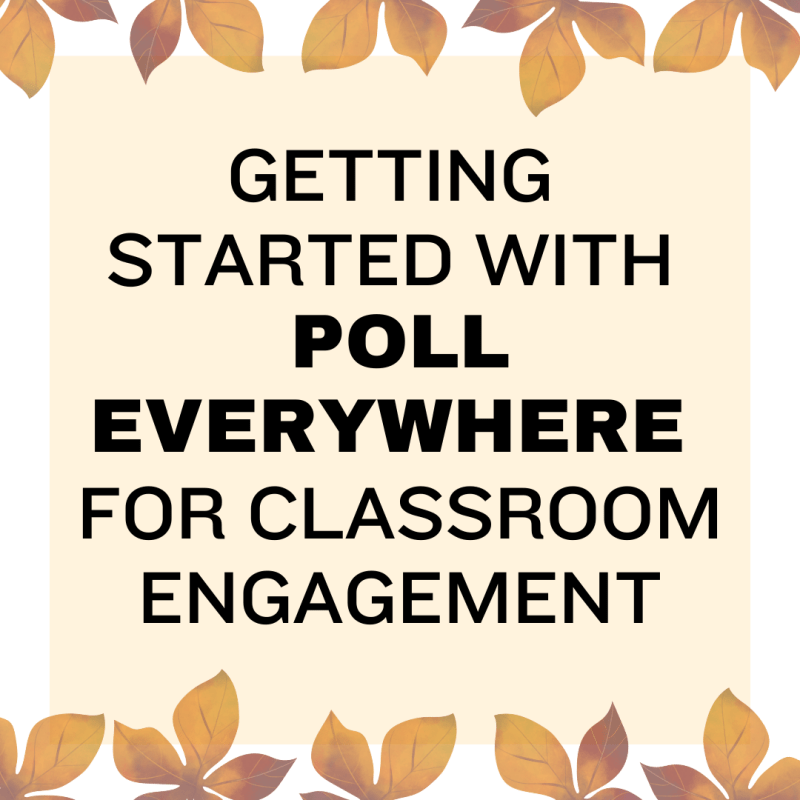 Engaging students at a distance and in the classroom can present challenges. Poll Everywhere provides a way to interact with your students with activities designed to ask questions, drive participation in group activities, and encourage students to share thoughts and insights from their phones or computers.
Engaging students at a distance and in the classroom can present challenges. Poll Everywhere provides a way to interact with your students with activities designed to ask questions, drive participation in group activities, and encourage students to share thoughts and insights from their phones or computers.
The workshop will use a blended flipped type of experience where the participants will first go into the Canvas course to view the course material that explains the procurement of a Poll Everywhere account, how to download and install the Poll Everywhere app to PowerPoint, and short videos introducing the Poll Everywhere software. After completing the Canvas portion, the participant will be granted access to the zoom link for the live Zoom session.
Canvas Mastery Paths Quick Take
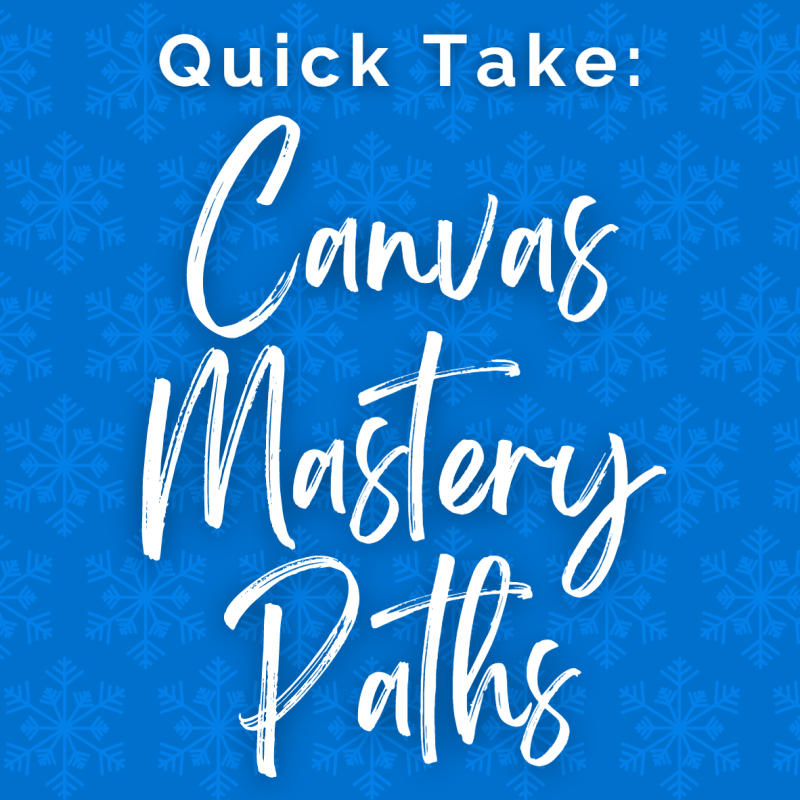 Canvas Mastery paths allows you to deliver specific pieces of course content to students based on performance on a graded assignment, discussion, or quiz. It is particularly useful for asynchronous courses where you want to restrict access to content until a student can master prior content. Mastery Paths can also allow you to present remedial content to students who did not perform well on a graded item and can also be used to provide students with a choice of assignments as they pursue course learning objectives. Join us as we guide you through Mastery Paths for Canvas.
Canvas Mastery paths allows you to deliver specific pieces of course content to students based on performance on a graded assignment, discussion, or quiz. It is particularly useful for asynchronous courses where you want to restrict access to content until a student can master prior content. Mastery Paths can also allow you to present remedial content to students who did not perform well on a graded item and can also be used to provide students with a choice of assignments as they pursue course learning objectives. Join us as we guide you through Mastery Paths for Canvas.
Actions to Improve Your Zoom Session
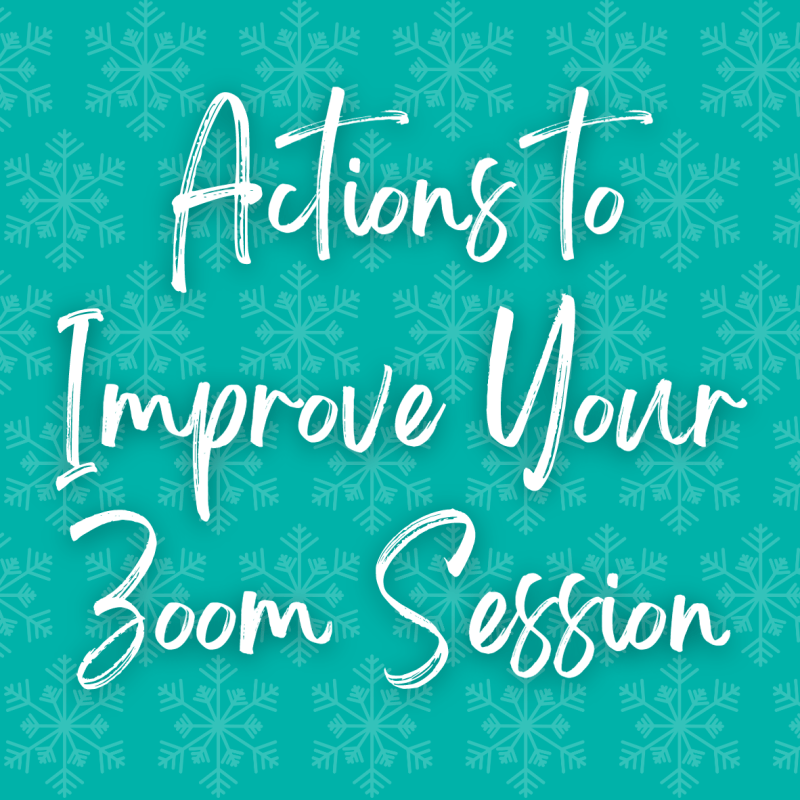 This session is designed to give faculty a handful of tips to improve their Zoom sessions. We will review several lesser utilized Zoom features and share how they can help improve the quality of your zoom session to make class time more engaging. During the session we will share tips about Breakout Rooms, Zoom Polls, the New Whiteboard, enhancing your screen sharing, reactions and how to preserve your Zoom recordings.
This session is designed to give faculty a handful of tips to improve their Zoom sessions. We will review several lesser utilized Zoom features and share how they can help improve the quality of your zoom session to make class time more engaging. During the session we will share tips about Breakout Rooms, Zoom Polls, the New Whiteboard, enhancing your screen sharing, reactions and how to preserve your Zoom recordings.
